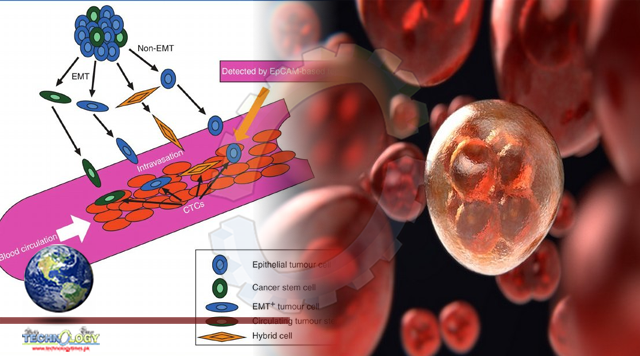The findings shed light on intravasation, a key step in cancer metastasis during which tumor cells penetrate the vessel wall and enter the circulation to travel to the other parts of the body and establish colonies.

Researchers at Johns Hopkins University have identified a specialized protein that appears to prevent tumor cells from entering the bloodstream and spreading to other parts of the body.
The findings shed light on intravasation, a key step in cancer metastasis during which tumor cells penetrate the vessel wall and enter the circulation to travel to the other parts of the body and establish colonies.
We have discovered that this protein, TRPM7, senses the pressure of fluid flowing in the circulation and stops the cells from spreading through the vascular system.
We found that metastatic tumor cells have markedly reduced levels of this sensor protein, and that is why they efficiently enter into the circulation rather than turning away from fluid flow, noted Kaustav Bera, a Johns Hopkins University PhD candidate in chemical and biomolecular engineering and a lead author of the study.
The study was conducted with colleagues at the University of Alberta and Universitat Pompeu Fabra and the findings are published in the journal Science Advances.
According to the researchers, the TRPM7 protein, which has long been known to regulate calcium in cells, senses the flow of the fluid in the circulatory system and instructs the cell to reverse direction, thereby inhibiting intravasation.
For their initial experiment:
- The researchers observed healthy fibroblast cells moving through microchannels arranged perpendicularly in a ladder-like configuration in which the fluid could be controlled.
- When these cells encountered channels where fluid was moving, they reversed their direction in response to the shear stress exerted from the flow. However, when the cells encountered channels where fluid wasn’t moving, they proceeded into them.
- In the next step, a process known as RNA interference was used to block the cells from expressing TRPM7. When this sensor protein was disabled, the healthy cells no longer reversed direction in response to the flow.
In subsequent experiments, normal cells were found to have higher levels of TRPM7 than sarcoma cells (a type of cancerous tumor cells).
While more research is needed, the research team expects that the findings could eventually lead to new cancer therapies using CRISPR activation.
“We’ll need further developments before we can take this to the clinical setting, but we believe we provide, for the first time, a definitive picture of the role of TRPM7 in a crucial step of tumor metastasis,” said senior study author Konstantinos Konstantopoulos, a professor of chemical and biomolecular engineering and member of the Johns Hopkins Kimmel Cancer Center.
Originally published at Devdiscourse